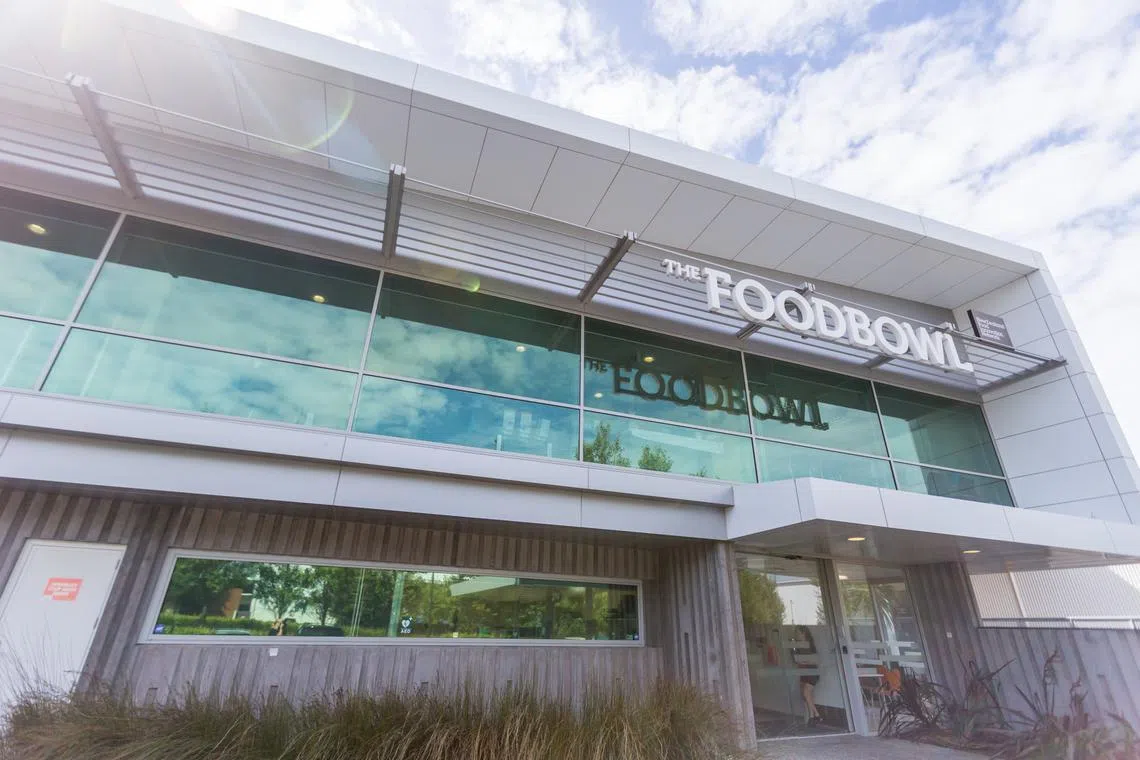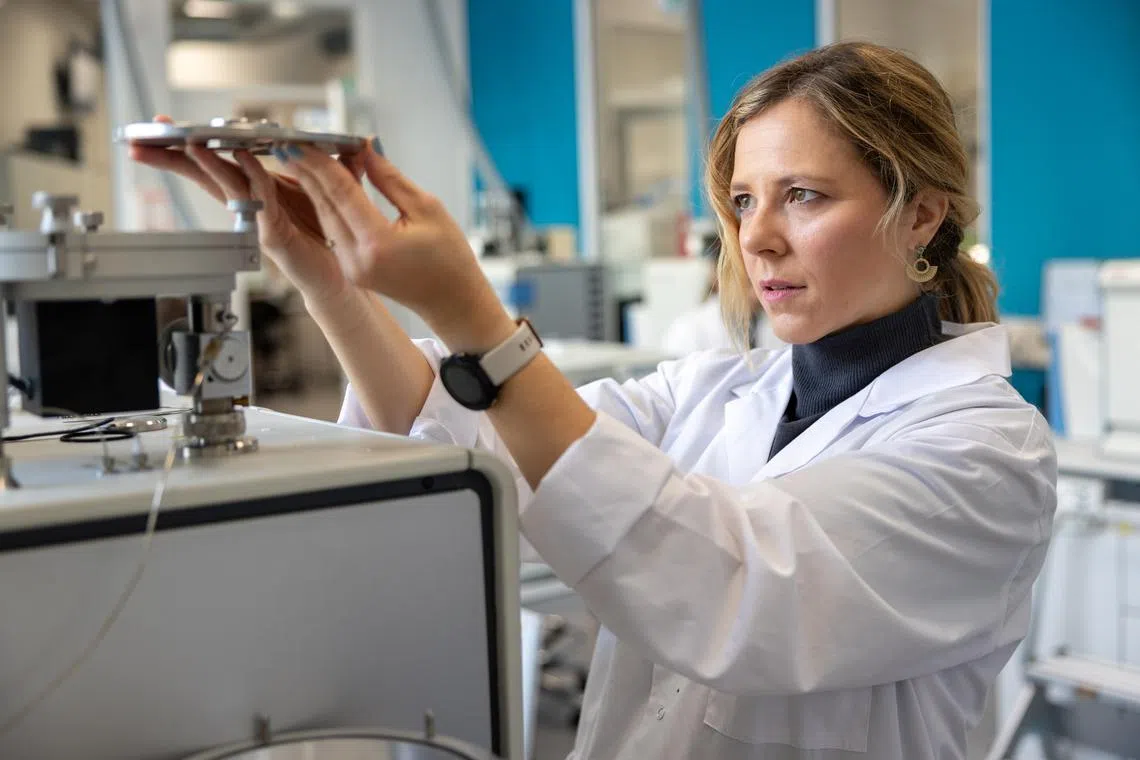Future-proofing food security: S’pore and NZ pool resources to spur innovation
Through knowledge sharing and strategic collaboration, the two nations are driving innovative breakthroughs in food science and technology
Charlotte Kng YT
FOR a land-scarce country with limited resources, Singapore is continuously finding new ways to scale food production on a sustainable level.
In recent years, advancements in food technology and innovation have made it possible for Singapore to produce more food with fewer resources. The city-state has also been working with other countries to study innovative ways to increase food yield and test-bed new food products. One of them is New Zealand.
Under a partnership between the two countries, food processing engineers from Singapore spent a month at The FoodBowl – a pilot-scale food processing facility in Auckland – testing out new technologies and specialised manufacturing machinery that can help scale food production.
There, these engineers also get to learn best practices from agri-tech experts. In exchange, engineers from The FoodBowl get the opportunity to study newly developed food production technologies and latest research at the Singapore Institute of Technology’s (SIT) 1,107 sq m food innovation centre, FoodPlant.

The aim of the cross-border programme, says The FoodBowl chief executive officer, Grant Verry, is to drive breakthrough innovation in food technology through strategic partnerships between companies in New Zealand and Singapore – two countries that have complementary strengths in this aspect.
He says: “New Zealand is already renowned for its high-quality, premium products, particularly in the food and beverages sector, including beef, lamb, and dairy. Building on this foundation of quality, safety and sustainability, both countries benefit from shared expertise in food science and technology.
Navigate Asia in
a new global order
Get the insights delivered to your inbox.
“This enables food innovators to add value to their products and bring their ideas to market. The collaboration allows companies to test, learn and accelerate commercialisation of their innovations, ensuring that food quality, supply, and safety standards are met before entering the market.”
In 2023, New Zealand exported a total of NZ$2.3 billion (S$1.8 billion) worth of goods and services to Singapore, with 37 per cent coming from food and beverage.
Across the globe, food science and innovation have provided countries with new ways to overcome their food security challenges, enabling countries to maximise production, enhance nutrition, and build resilient food systems. From a business perspective, emerging enterprises and established companies have leveraged these advancements to develop sustainable, cost-effective solutions that address consumer demands while tackling global food security concerns.

Strengthening food technology partnerships
The initiative between The FoodBowl and SIT is one example. Since both sides signed a memorandum of understanding in 2022, the Kiwi company has expanded into a broader Asia-Pacific food innovation network. This creates a regional ecosystem for businesses to utilise as they develop their value-add food innovation to meet global market demand.
The collaboration between The FoodBowl and SIT was made possible with the help of New Zealand Trade and Enterprise (NZTE), the New Zealand government’s international business development agency.
It helps that Singapore and New Zealand have a strong and long-standing alliance that underscores the significance of cross-border innovation and collaboration. Both countries will celebrate the 60th anniversary of their diplomatic relations next year.
As small, advanced economies, both countries share similar challenges in energy security, climate change, technology and innovation, food, energy, and wider security interests.
The innovation partnerships fostered through NZTE offers both countries the opportunity to serve as testing grounds for each other’s products and services, capitalising on their size and geographical proximity while overcoming the limitations of a small domestic market.
Advancing food traceability technology in Asia
Besides The FoodBowl, NZTE has also helped another Kiwi company Oritain find its footing in Singapore and work with local businesses to push the boundaries of food technology.
Like a detective, Oritain uses forensic science and data to verify the origin of products and raw materials, including foodstuff, cotton fibre and pharmaceuticals.
It helps the world’s leading brands comply with regulation, meet sustainability commitments, reduce the risk of fraud and unethical practices, and protect their reputations.
Oritain can provide verifications for products such as coffee, honey, fresh produce like fruits such as apples, oranges, and also red meats and poultry.

For consumers, Oritain’s technology can help to detect fraudulent food products that may become more prevalent with growing supply challenges.
The company has set up an office in Singapore to address the needs of the South-east Asian market. It has also entered into a new multi-year partnership with Singapore-headquartered textile and apparel manufacturer Ramatex Group.
Both Singapore and the wider region have thriving manufacturing sectors, but with regulations tightening and enforcements increasing across the globe, it is more important than ever for businesses to be able to prove the integrity and authenticity of their products.
Oritain’s history is built on working with brands, retailers and manufacturers to provide origin verification that underpins their traceability programs, and Oritain’s partnerships here in Singapore will help provide the same high levels of compliance and reassurance for local businesses.
Says Frank Brilliant, chief revenue officer of Oritain: “Engaging with local business experts will be key for us in expanding from Singapore into the broader region.”
He notes: “There’s no substitute for local knowledge in navigating the mores and processes of new markets.”

“What works in New Zealand or the United States may not work in Asia, and that lesson will be a tougher one to learn without the support of local expertise,” he adds.
“Our team may have the scientific knowledge, but collaborating with local business experts will be essential in enabling our growth and achieving efficiencies to deliver the best results for our customers,” he says.
Ms Maggie Christie, New Zealand Trade Commissioner to Singapore, highlights that the collaboration between New Zealand and Singaporean companies in the food tech industry is a natural progression from the long-standing partnership between the two nations.
She says: “Furthermore, Singapore is well-known for its position as a technology hub. Its strong infrastructure and business-friendly environment makes Singapore the premier gateway to Asia, where entrepreneurs, investors and businesses convene to tap into the tech potential that the region has to offer, which makes it the perfect launchpad for New Zealand companies looking to expand in Asia.”
Get to know New Zealand companies and their innovations here.

Decoding Asia newsletter: your guide to navigating Asia in a new global order. Sign up here to get Decoding Asia newsletter. Delivered to your inbox. Free.
Share with us your feedback on BT's products and services
